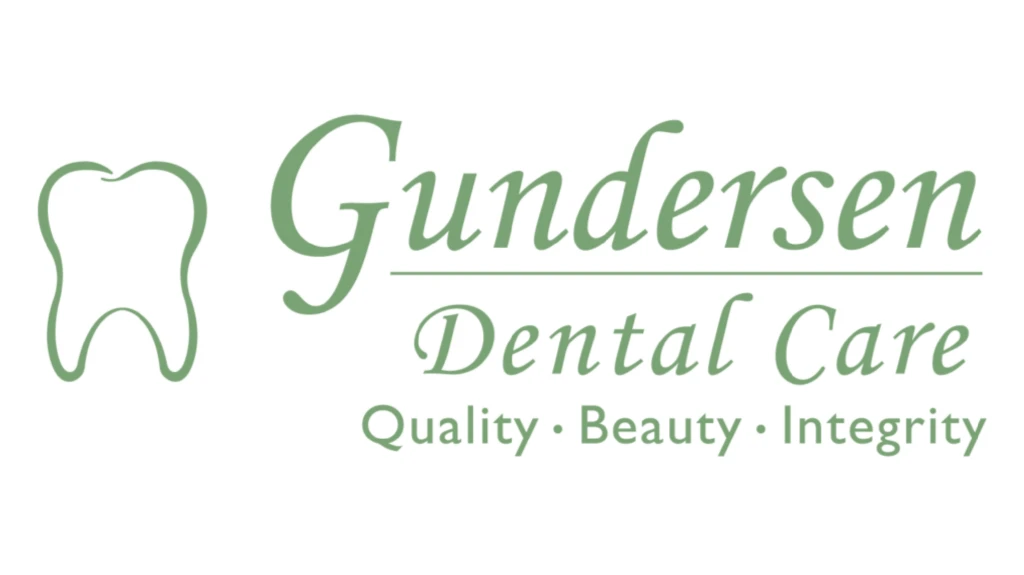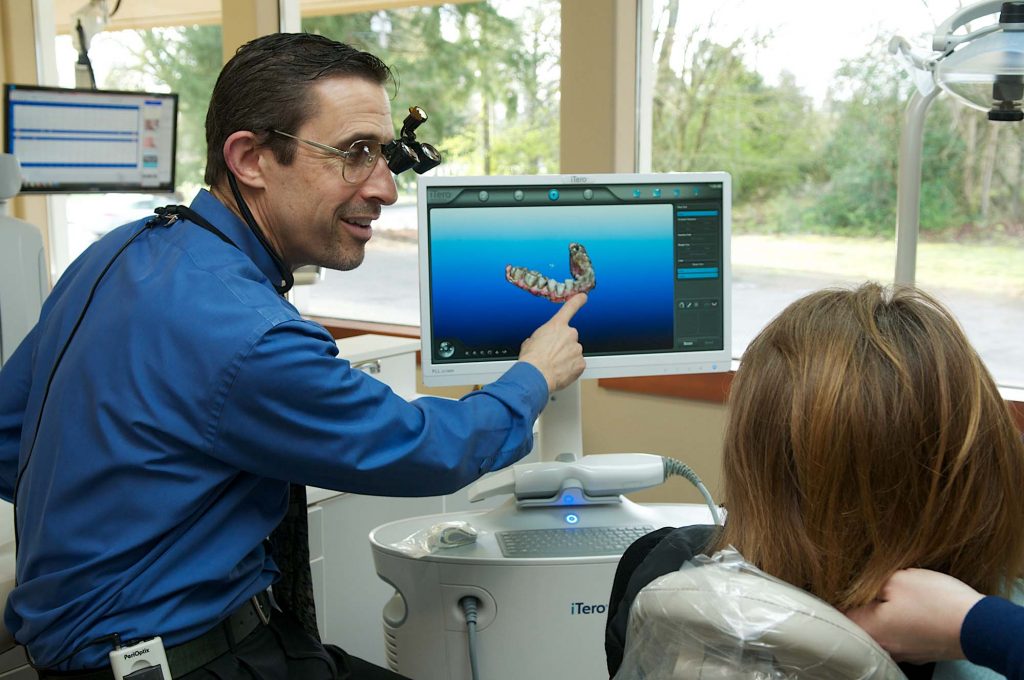Dentures and Veneers
Restore the function of your teeth without compromising beauty.
WHY DENTURES?
Restoring Your Oral Health with Dentures
Your oral health depends on having all your teeth to maintain structural integrity. When that is no longer possible, there are options that can help you protect your remaining teeth for proper function and appearance. If implants and bridges are not an option, full or partial dentures can restore your ability to eat a variety of foods and show your smile.
The Denture-Making Process
To create a set of dentures, Dr. Gundersen will make molds of your upper and lower teeth, or simply the gums if no teeth are present. Using these molds, they will make a relief that will be used to create plates that fit your jawline. The plates will be fashioned out of a hard resin polymer and designed to look as close to your original teeth as possible.
Restoring Your Oral Function and Appearance
When implants and bridges aren’t an option, full or partial dentures can restore your ability to eat a variety of foods and show your smile. These custom-made prosthetic teeth can help maintain the structural integrity of your remaining teeth and improve your overall oral health and appearance.
Adjusting to Dentures: A Smooth Transition
As you begin wearing your new dentures, there is a period of adjustment and adaptation. Dr. Gundersen will play a crucial role in ensuring a seamless transition. During your initial appointment, Dr. Gundersen will carefully insert the dentures into your mouth and test the bite and comfort. He will then make any necessary adjustments to ensure a secure and comfortable fit.
If your dentures were made shortly after the removal of your teeth, you may need some resizing as your gums shrink during the healing process. This is essential to maintain a secure fit. Any gum irritation or sores you experience are a sign that the dentures require further adjustment for your comfort.
Accommodating Gum Changes
Dr. Gundersen will provide you with valuable information on cleaning and protecting your dentures. He will also recommend products that can help keep your dentures in place, enhancing your experience when eating and speaking. It is common to experience some changes in your speech when you first start wearing dentures.
However, most people quickly adapt and overcome any speech-related challenges through practice and patience. Remember, the transition to dentures is a learning process, but with Dr. Gundersen’s guidance and your commitment, you can look forward to a smooth and successful adjustment.
Accommodating Gum Changes
Dental implants can give partial plates extra stability. If needed, Dr. Gundersen can add additional implants to the existing ones to create a firm foundation for your dentures.
When should you consider getting dentures?
As you age, your body may begin to lose calcium, causing your teeth to break down and weaken. This can lead to an increase in cavities and decay. Dr. Gundersen can identify many of these problems and may recommend the use of dentures as a way to help you regain your oral health. Dentures can allow you to chew your food more efficiently, helping you maintain a proper diet.

Cosmetic Dental Veneers: Transforming Smiles
Cosmetic dental veneers offer a solution to problems that other dental treatments cannot address. A veneer is a thin, porcelain shell that covers the surface of an existing tooth. These veneers are crafted from high-quality porcelain to mimic the look and feel of natural teeth. They are designed to match the size, shape, and color of the surrounding teeth, creating a uniform and aesthetically pleasing appearance.
How long does a veneer last?
Once the veneers are custom-made to the desired specifications, Dr. Gundersen will prepare the teeth for their permanent application. This process involves gently sanding away a small amount of the tooth’s enamel to roughen the surface. This step ensures a strong bond between the veneer and the tooth. After the veneer is securely bonded in place using a powerful adhesive, Dr. Gundersen will perform any necessary cleaning or trimming to complete the procedure.
What kind of issues can veneers correct?
Veneers can correct several structural abnormalities, as well as various types of damage to your teeth. A few of the most common uses are:
- Teeth that are smaller than normal
- Broken or chipped teeth
- Discolored teeth
- Teeth that have an abnormal shape or that didn’t form correctly
- Gaps and spaces between the teeth.
A veneer can extend off of the tooth, closing small gaps and spaces that may not be able to be corrected through the use of conventional braces. This creates a more uniform appearance and makes your smile more visually appealing.
If you are interested in learning about the benefits of veneers and what options are available, you can make an appointment with Dr. Gundersen to learn how veneers can help you.
SIMPLE. EFFECTIVE. EFFICIENT.
Dental crowns offer function and beauty.
This common restorative dental treatment is the “royalty” of dental care. Here are a few of the benefits.
- Replacement of one or more missing teeth
- Support of a bridge to replace multiple teeth
- Support of a non-removable full or partial denture
- Provide restoration that blends into your smile
- Replace a missing tooth as part of a dental bridge
- Restore your smile after a dental implant


